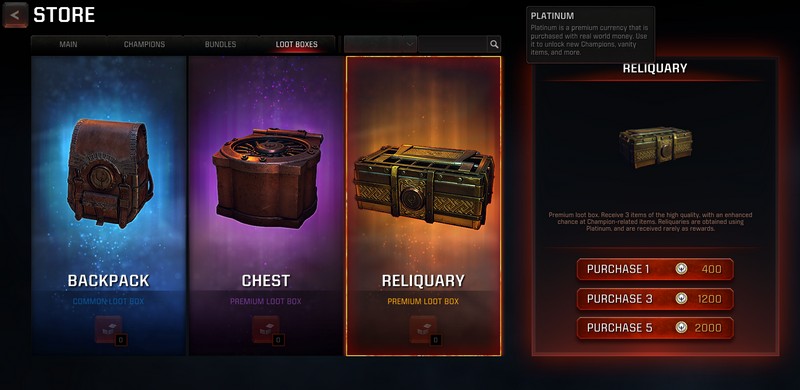Following the recent crackdown on loot boxes in Belgium and the partnership of 16 countries to address the issue, it seemed that much of the EU was preparing to take action against companies offering gambling-like mechanics in their games. According to an article on IGN, Ireland is taking a different stance on the issue, with regulators saying they don’t see it as something that needs to be outlawed at the moment.
The Irish Legal News (via IGN) has reported that on the issue of loot boxes, Ireland Department of Justice Minister of State David Stanton stated that the Department of Justice “does not have a role to regulate game developers on how their games work nor, in the offering of in-game purchases.”

This is rather surprising considering that Ireland was one of the aforementioned 16 countries that signed the “declaration of gambling regulators on their concerns related to the blurring of lines between gambling and gaming.” Regarding this, Stanton clarified his position on the issue saying the following:
“Where a game offers the possibility of placing a bet or the taking of risk for financial reward within the game, then, in my view it must be licensed as a gambling product. To offer gambling products in Ireland, a license is required under the Betting Acts 1931-2015 or the Gaming and Lotteries Act 1956. The Revenue Commissioners are the primary responsible licensing authority under both Acts, with some involvement of the Minister for Justice and Equality.
“However, it should be understood, that if a game offers in-game purchases – be they loot boxes, skins, etc. – which are promoted to gamers as increasing their chances of success, such purchases are essentially a commercial or e-commerce activity. This activity would fall within normal consumer law.”
Based upon this statement, it seems as though Stanton has limited experience with loot box mechanics. When he notes that loot boxes are acceptable if they are promoted to gamers as “increasing their chances of success,” he seems to be referring to the idea that loot boxes improve the odds of a gamer “winning the game.” This notion is extremely out of touch with not just the concept of loot boxes, but with the gaming industry’s practices as a whole. In reality, most games offer cosmetic items through loot boxes which have no relationship with “increasing their chances of success” for winning a game.
Stanton seems to believe that there is no point where e-commerce activities and gambling can intersect, and yet, that is precisely what loot boxes do.
Featured Image Source: Extremetech









